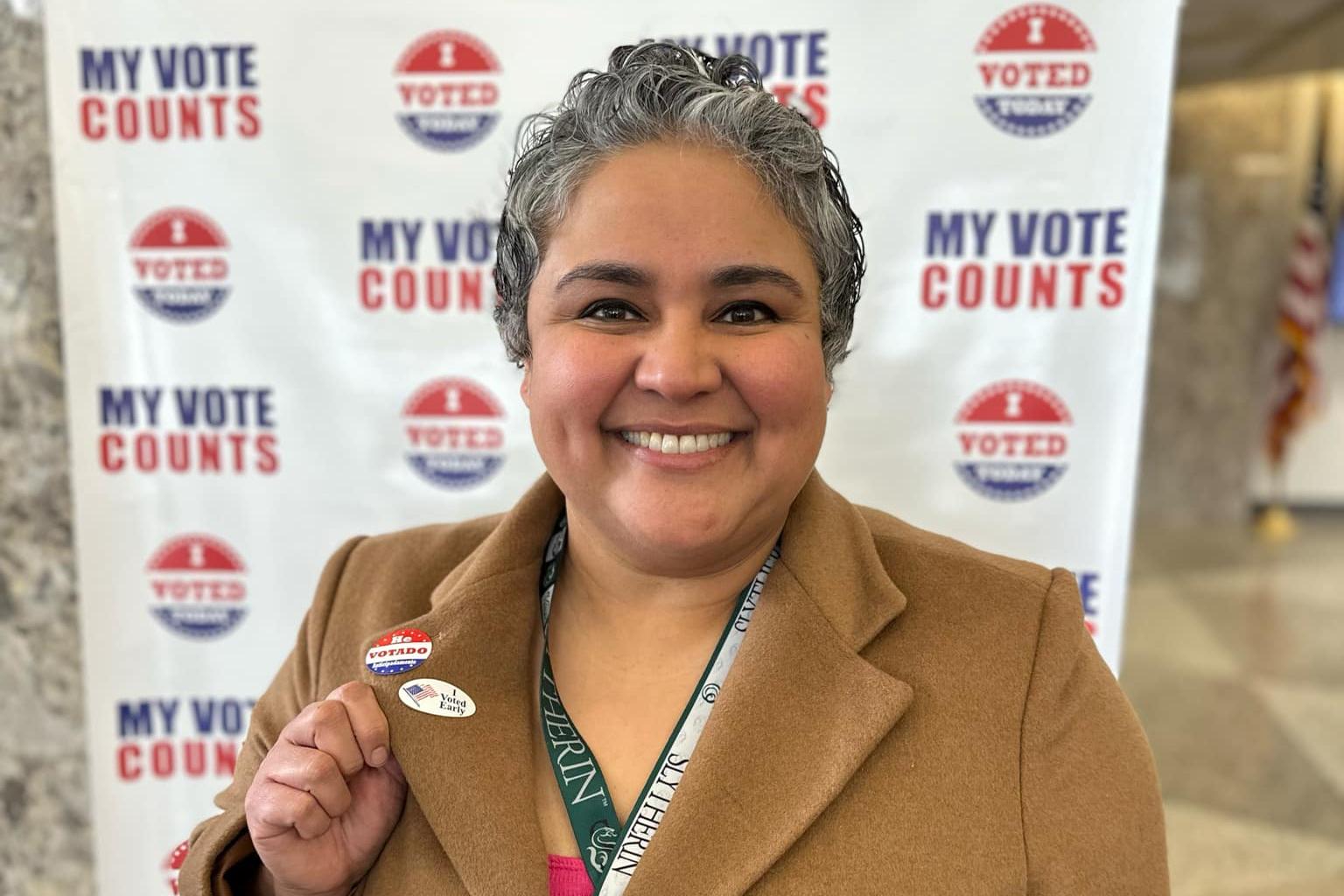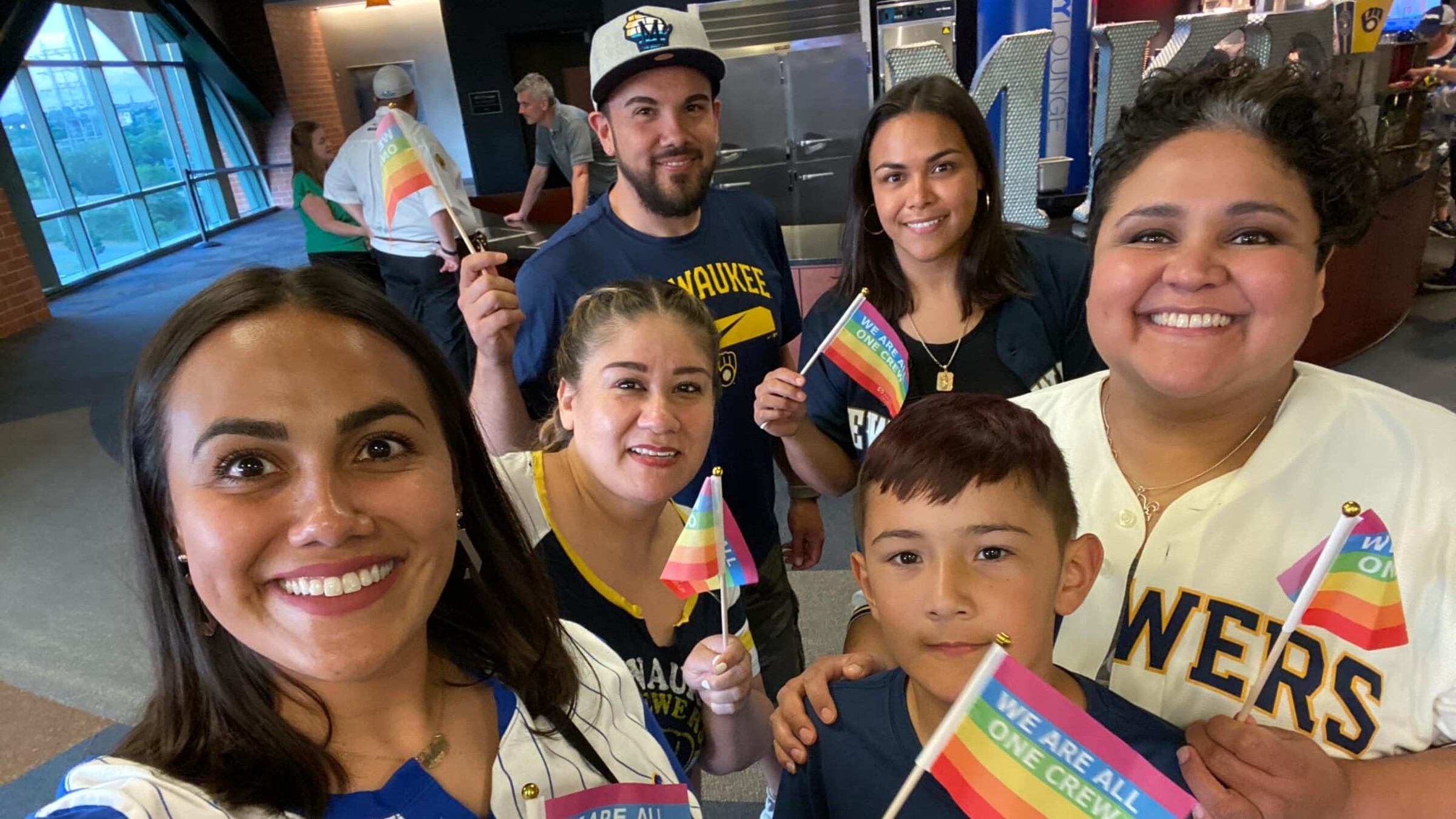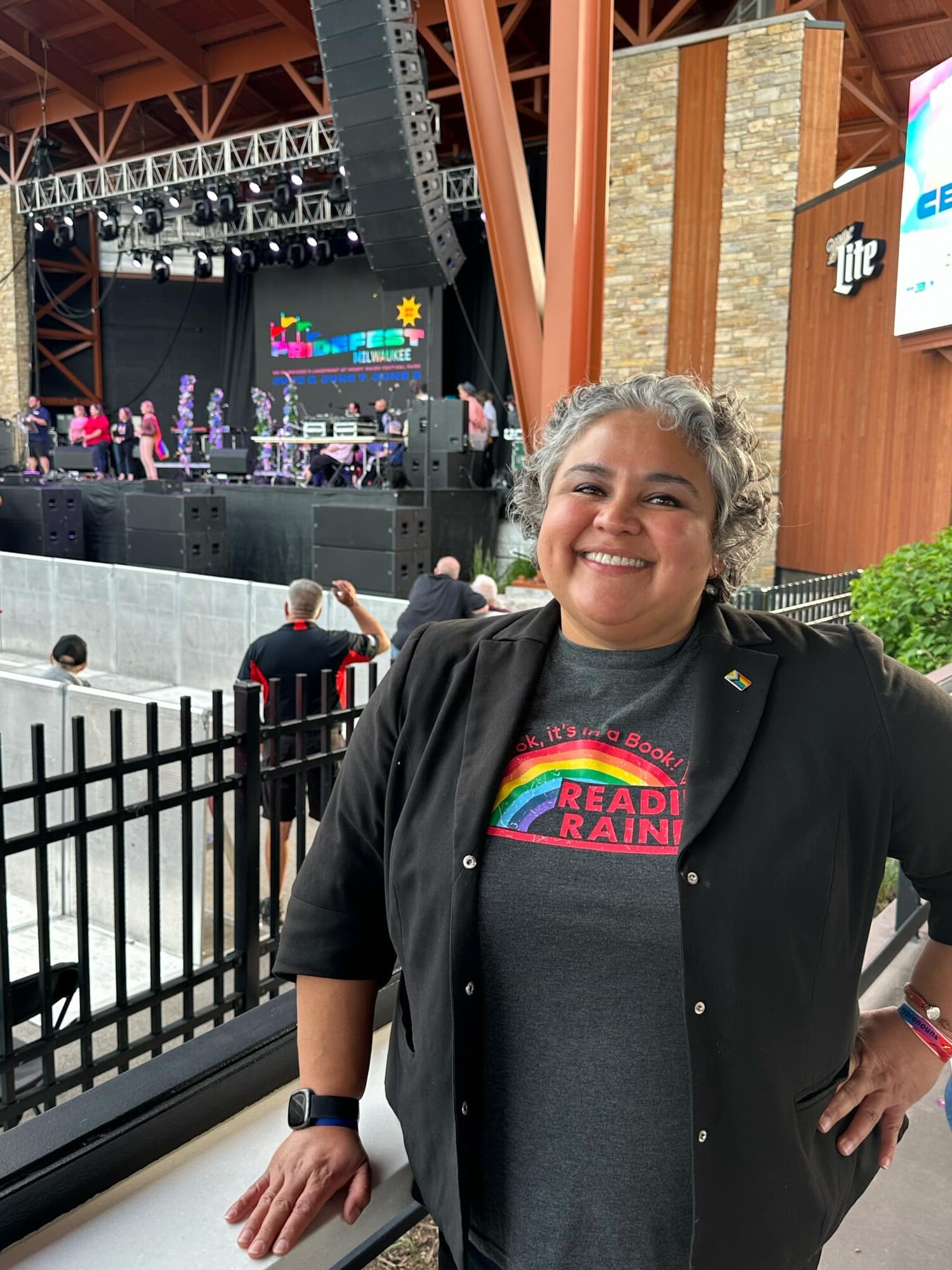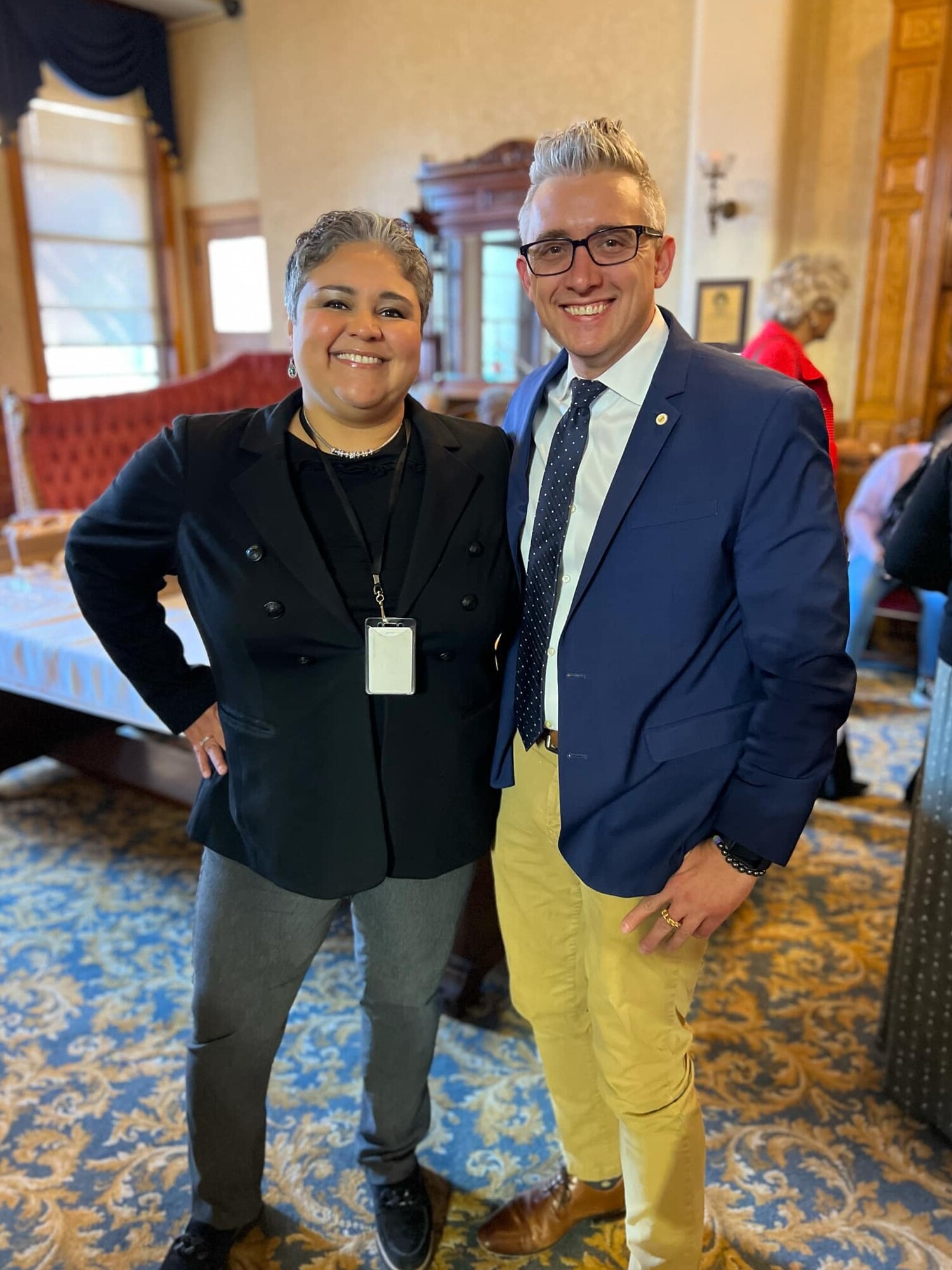
JoCasta Zamarippa: the world needs bisexual heroes

"Whenever I see a bisexual as a hero or heroine, it's a beautiful thing to me."
JoCasta was born and raised by a young mother in a single-parent household. Her aunt played a huge in role in raising her, and she inspired JoCasta's passion for politics and public service. While the family moved often, they stayed on the near South Side.
"Clarke Square is where I was born and raised," said JoCasta."
"Unfortunately, I didn't have much LGBTQ representation growing up," said JoCasta, "and I thought I'd never share the fact I was bisexual with people. I knew when I was nine years old that I had feelings for boys and girls, but I never shared that part of me. I attended St. Joan Antida, an all-girls school on Milwaukee's East Side. I didn't know anyone queer in high school."
"I knew it wasn't socially acceptable to be bisexual, and I felt this constant pressure to be straight and heteronormative. So, I kept it to myself."
"After I graduated, I found some of my classmates had come out," said JoCasta. "How ironic! We could have confided in each other and supported each other in high school. But we didn't have a chance."
"But, until I was 20 years old, I never expressed anything to anyone."
"Unfortunately, my decision was not as noble as I would like to think it was," said JoCasta. "I came out because rumors were already swirling around me being gay. I wasn’t out broadly, but it was already out there. I’m not sure how. I was active in the bar scene and my opponents used that against me."
"But they had it wrong: they thought I was gay and used that as a talking point."
While running for office in 2010, JoCasta was pressed by reporters to talk about her sexual identity. Since she was not out, she constantly pivoted on the question and tried not to answer it.
"I didn't want to lie and say I was straight, but I didn't want to be forced to come out," said JoCasta. "I was in a fishbowl for the world to see. It was exhausting, especially because my constituents weren’t asking me about my sexual identity.”
When JoCasta ran again, she faced the same opponent and the same homophobic rumors. She realized it was time to stop hiding this part of herself.
"I was fed up," said JoCasta. "Since my identity was a negative in my opponent's mind, I decided to flip the script. I decided to own it completely."
JoCasta came out to State Representative Mark Pocan, who took her by the hand to the Victory Fund. She sat down with communications experts and gained valuable media training. JoCasta also credits the leadership of Tammy Baldwin and Tanya Atkinson in inspiring her journey.
"I spent my whole life in the closet, and now I had to get comfortable talking openly about being bi," said JoCasta. "The Victory Fund helped me verbalize myself professionally and personally. And these out women leaders supported me from the onset."
JoCasta called Georgia Pabst at the Milwaukee Journal Sentinel and booked an exclusive coming-out interview.
"It was so liberating, but the headline wasn't great," said JoCasta. "ZAMARRIPA COMES OUT AS BISEXUAL. It felt so sensational and scandalous. But I got a ton of praise, gratitude, and support from people. Just so much."
"It was so refreshing to be out and proud and live authentically. I thought it would never happen, and here I was, owning it completely."
JoCasta will always remember the kind words of Brian Juchems of GSAFE.
"You have no idea how much you've helped young people in Wisconsin, said Brian, so that they can come out, live authentically, and thrive," said JoCasta. "It was one of the most moving things anyone has ever said to me."
"It actually offends me when people say, 'who cares?' and 'why does it matter?" said JoCasta. "Some of these people consider themselves allies, and I know they're well-meaning, but it's so dismissive and diminishing because it does matter. This is my existence. This is the existence of many people. If it's not your existence, perhaps this is an opportunity to educate yourself on what's going on here."
"If everyone knew how it felt not living freely and authentically, they wouldn't ask why it matters. If it really didn't matter, we wouldn't see the legislative attempts we're seeing right now. We wouldn't see the devastating effects we're seeing on queer kids."
"Trust me, it matters a lot."
Heroism is a choice
JoCasta remembers the moment Ellen DeGeneres came out.
"It was a big, big deal," said JoCasta. "I'd never shared my feelings with anyone, not even in my diary, because I worried someone would find it and use it against me. When Ellen came out, I suddenly felt like I could write it down for the first time."
After Ellen, queer representation became a recurring media theme -- both bad and good.
"I remember thinking The Talented Mr. Ripley was coded bisexual, so of course he was the villain," said JoCasta. "I saw that theme depicted over and over. Bisexuals are the bad guys. Bisexuals are the plot twist."
"Compare that to Yara Greyjoy on Game of Thrones, who is a wonderful representation of bisexuality. She's just a bad-ass queer woman out there living her life. She goes after what she wants and doesn't apologize for it. Such a minor role made such a major impression."
"Whenever I see a bisexual as a hero or heroine, it's a beautiful thing to me," said JoCasta.
"I've never shared this before, but Freddie Mercury is my spiritual father. He's very special to me -- someone I look up to as as bisexual icon. His story is very inspiring to me. If you come to my office, you'd also see pictures of Wonder Woman. I see her an iconic bisexual superhero. When i was a little girl, I was just so inspired by her. I wore my Wonder Woman Underoos and just spun around and around. She's been a constant in my life ever since."
Living out and proud
Since coming out, JoCasta has only experienced a handful of negative comments. However, some of her colleagues challenged her levels of queerness.
"One co-worker would always say 'gay and lesbian' as opposed to LGBTQ," said JoCasta. "I noticed all these little jabs, because they felt like attempts to confront or exclude me. We've come so far as a community, and there's still this skepticism. There's still this myth that you should equally date men and women in a 50/50 split. There's still a belief that you can't be married to the opposite sex if you're bisexual. And you hear this when you're dating, that bisexual people are less trustworthy, less committed, and less dateable."
"Bisexual rejection, especially other queer people, is a lot to deal with. It kills me what people try to take from us."
JoCasta has been inspired by the emergence of Bi Pride Milwaukee.
"I remember meeting Amy Luettgen for the first time at Woodland Pattern," said JoCasta. "I introduced myself after her presentation, but she already knew exactly who I was, and she was delighted to have me there. Since then, Bi Pride Milwaukee has grown exponentially in size and impact."
"Having a bi-specific organization is so important, because there's a history of erasure and exclusion," said JoCasta. "Bi Pride Milwaukee helps people get to a place of comfort with themselves. Bisexual people make up the majority of the LGBTQ population, and yet we're still trying to prove we exist. We need to remove the stigma that bisexual people are problematic. We need to continue telling bisexual stories, bringing bisexual people together, and supporting bisexual community."
Reclaiming the Gay Rights State
It wasn't long ago that someone told JoCasta that a bisexual could never win an election.
"During a political training for progressives, I asked the facilitator if a bisexual could run for office," said JoCasta. "They said no. A gay or lesbian could win, but a bisexual never would. That was in the late '90s."
"Now, I'm in a city office and I'm really governing,' said JoCasta. "The queer caucus has a seat at the table. We're rolling up our sleeves and doing the real work. We're challenging ourselves to see what we can make happen. We're moving beyond the symbolic measures and driving real change."
JoCasta hopes that Wisconsin's progressive past will inspire a new breed of activism.
"We have so much great history here," said JoCasta. "One of the first gay uprisings happened in Milwaukee. Wisconsin was the first state to protect gay and lesbians from discrimination. We had the first gay U.S. senator. Nobody can take these things away from us. We need to lift up this history and talk about it more .We need more people to realize how much Wisconsin led the nation."
"That heritage might come across as unusual today, but we're a purple state and the pendulum is swinging," said JoCasta. "But the community can't just expect change to happen. We have to make it happen. Young people need to step up, step forward, and carry the torch forward. And we need to make room for them. We need to keep on coming out, standing up, and creating a better world than the one we found."
"We need to continue advancing the equality agenda. We need to remove the stain of the marriage amendment from the Wisconsin State Constitution. We need to address conversion therapy on the state level."
"There's so much work left for us to do."
 JoCasta and her family
JoCasta and her family
recent blog posts
December 01, 2025 | Dan Fons
December 01, 2025 | Garth Zimmermann
November 28, 2025 | Michail Takach
The concept for this web site was envisioned by Don Schwamb in 2003, and over the next 15 years, he was the sole researcher, programmer and primary contributor, bearing all costs for hosting the web site personally.





